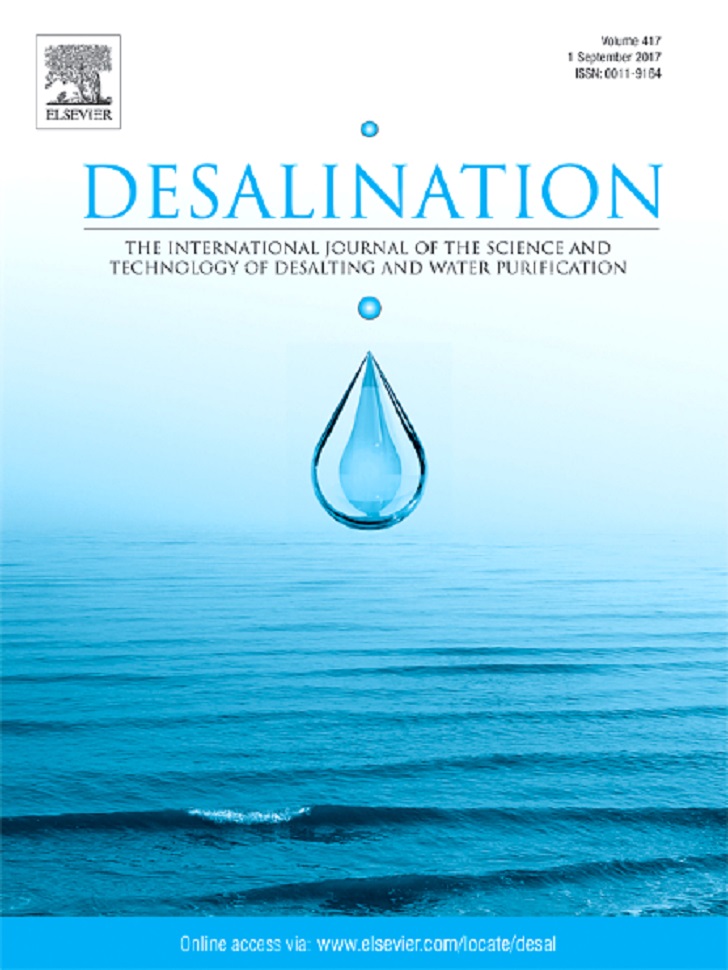
The research article 'A compact hybrid batch/semi-batch reverse osmosis (HBSRO) system for high-recovery, low-energy desalination' has been published in Elsevier journal Desalination (Volume 504, 15 May 2021, 114976).
Abstract
Batch reverse osmosis (RO) is a promising approach to high-recovery desalination. It has low energy consumption, but system size increases sharply with recovery because of the need for a large work exchange vessel. In this study, we propose a compact hybrid batch/semi-batch reverse osmosis (HBSRO) system incorporating aspects of each approach. HBSRO works in three phases, i.e. semi-batch pressurisation phase, batch pressurisation phase, and finally purge-and-refill phase. We analyse ideal and practical cases of HBSRO to gain understanding about the specific energy consumption (SEC) and size of the system. In the ideal analysis, HBSRO can halve the size of work exchange vessel while incurring just a 5% energy penalty compared to batch RO at all recoveries. In the practical case, accounting for non-idealities, HBSRO has lower SEC than batch RO at recovery over 0.9, because a smaller volume of work exchange vessel minimises the energy penalty of the purge-and-refill phase in HBSRO. The reduced volume not only makes HBSRO more practical, but also improves energy-efficiency through reduced losses. Thus, our study highlights that HBSRO is highly flexible, achieving high recovery, compact size, and low SEC – advantages that are especially important in minimal or zero liquid discharge applications.


